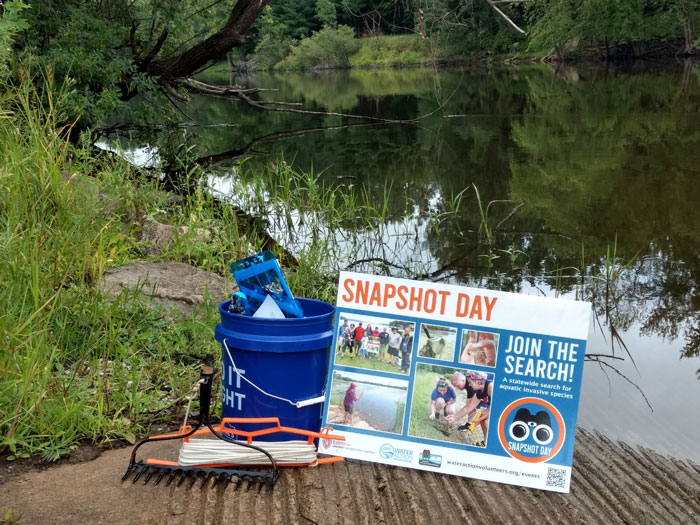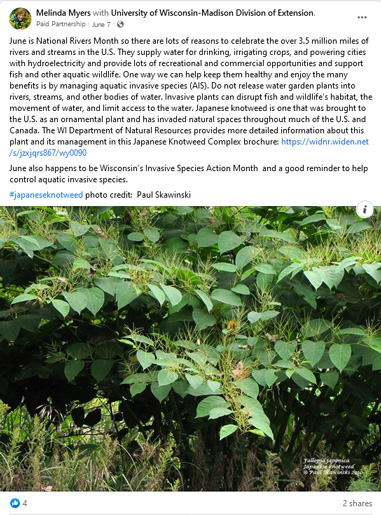Warming Weather? Help Volunteer to Protect Your Favorite Places
Opportunities Abound; Volunteer While Doing What You Love!
The warmer weather and open water is calling! When you’re out doing your favorite activities this spring and summer, you could be helping protect your lakes and rivers! Learn about some of the volunteer opportunities at Fox-Wolf below. Our volunteer opportunities give you the flexibility to do what you love while protecting your waters!
Adopt-a-Launch
Join community members in helping improve boat launches ! Interested individuals will adopt a local boat launch and help remove plants from the launch area, pick up litter, and report issues with the launch. Volunteers also help protect our lakes by searching for aquatic invasive species at their launch! Adopt-a-Launch program is a Fox-Wolf program that works to engage community members in taking ownership of their lakes by helping to search for aquatic invasive species and improve 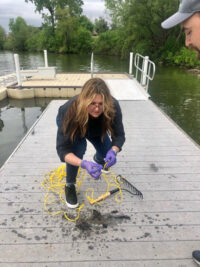 boat launches! Get involved today!
boat launches! Get involved today!
Project Riverine Early Detectors
Love to paddle, kayak, or canoe in rivers and streams? Help look for invasive species during this relaxing pastime! You will be trained on how to easily identify aquatic invasive species, some native look-a-likes, and how you can keep an eye out for them when you’re floating just around the riverbend!
Citizen Lake Monitoring Network
Join 1000+citizen volunteers statewide to collect high quality data on the lakes that you love! CLMN volunteers help monitor their lakes for a variety of things including water quality parameters, ice on/off, and aquatic invasive species! Volunteers help determine 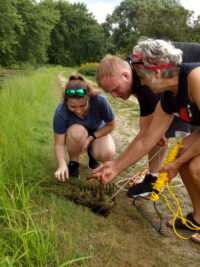 which topics they are interested in monitoring. The information gathered by volunteers is even used by Wisconsin Department of Natural Resources and university biologists and researchers, UW-Extension, and other interested individuals in projects that work to improve your lake! Help keep track of changes in your lake while being near your favorite Winnebago lake! This opportunity is easy to do from both the shoreline as well as your boat!
which topics they are interested in monitoring. The information gathered by volunteers is even used by Wisconsin Department of Natural Resources and university biologists and researchers, UW-Extension, and other interested individuals in projects that work to improve your lake! Help keep track of changes in your lake while being near your favorite Winnebago lake! This opportunity is easy to do from both the shoreline as well as your boat!
Purple loosestrife Biocontrol
Love to garden! This one’s for you! Help control harmful invasive species in our community! The invasive plant Purple loosestrife can quickly dominate a wetland and harm our native plants. You can help by raising a natural predator of Purple loosestrife (Galerucella beetles) on caged, potted, loosestrife plants in your backyard. Once released into local infested wetlands, the beetles only eat purple loosestrife, giving native plants a chance to re-establish. This DNR program, locally coordinated by Fox-Wolf Watershed Alliance, offers free supplies and does not require previous experience. Access to an outdoor space within reach of a garden hose is ideal, but we are also looking for volunteers to help with plant potting and beetle release events.
Clean Boats, Clean Waters
Love talking with people? Get involved in the effort to protect Wisconsin lakes and rivers by stopping the spread of aquatic invasive species. As a volunteer watercraft inspector, you will take up the front line by conducting boater education at boat landings in your community. Inspectors perform boat and trailer checks for aquatic invasive species, educate boaters on how to stop the spread, and collect and report new infestations. Meet other anglers and boaters from across the Midwest!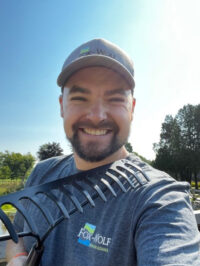
AIS Statewide Snapshot Day
Want a single day event that’s fun for the whole family? During the statewide Aquatic Invasive Species Snapshot Day, join other water quality enthusiasts in searching for invasive species that harm our waterways. Learn how to search for invasive species that may affect the waters that are special to you. You can choose to search from the shore with binoculars and a rake or wade into friendly waters to get a better look! This event is fun for the whole family and really makes a difference in the fight against invasive species. AIS Snapshot Day occurs on August 10th, 2024.
How To Get Started
Give the greatest gift this year to your waters; your time! Whether you want a single day opportunity or want to help out throughout the summer, we will help you fuel your environmental passions at Fox-Wolf! View more of Fox-Wolf’s volunteer opportunities by visiting: https://fwwa.org/join-us/volunteer-with-fwwa/
Interested? Contact – Chris Acy, Fox-Wolf Watershed Alliance AIS Coordinator. chris@fwwa.org. (920) 460-3674
Photo Credit: Dan O’Connell, Chris Acy
Questions? Comments? Contact Chris Acy, the AIS Coordinator covering Brown, Outagamie, Fond du Lac, Calumet, and Winnebago Counties at (920) 460-3674 or chris@fwwa.org!
Follow the Fox Wolf Watershed Alliance’s Winnebago Waterways Program on our Winnebago Waterways Facebook page or @WinnWaterways on Twitter! You can also sign-up for email updates at WinnebagoWaterways.org.
Winnebago Waterways is a Fox-Wolf Watershed Alliance program. The Fox-Wolf Watershed Alliance is an independent nonprofit organization that identifies and advocates effective policies and actions that protect, restore, and sustain water resources in the Fox-Wolf River Basin.
Check out the Keepers of the Fox Program at https://fwwa.org/watershed-recovery/lower-fox-recovery/
Reporting invasive species is a first step in containing their spread. Maintaining and restoring our waters and landscapes can reduce the impacts even when we don’t have other management options to an invasive species.
The post Warming Weather? Help Volunteer to Protect Your Favorite Places appeared first on Fox-Wolf Watershed Alliance.
Fox-Wolf Watershed Alliance
https://fwwa.org/2024/03/13/warming-weather-help-volunteer-to-protect-your-favorite-places/?utm_source=rss&utm_medium=rss&utm_campaign=warming-weather-help-volunteer-to-protect-your-favorite-places


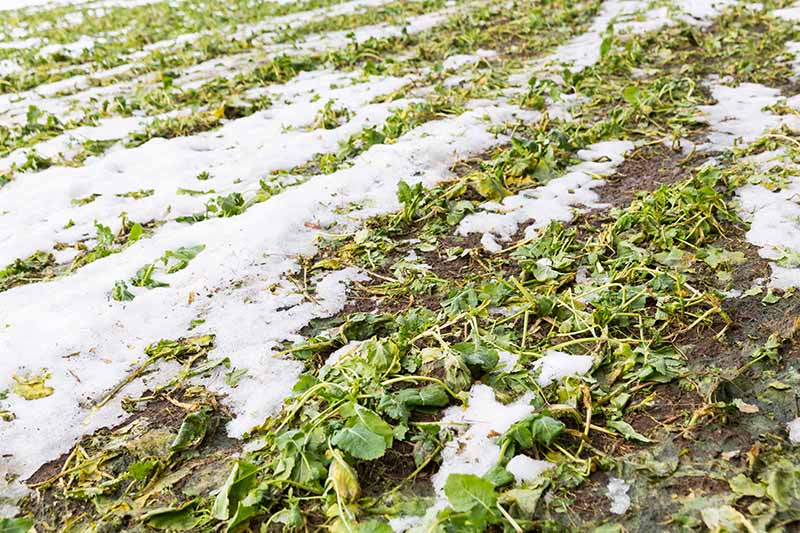
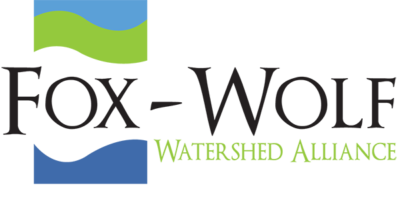
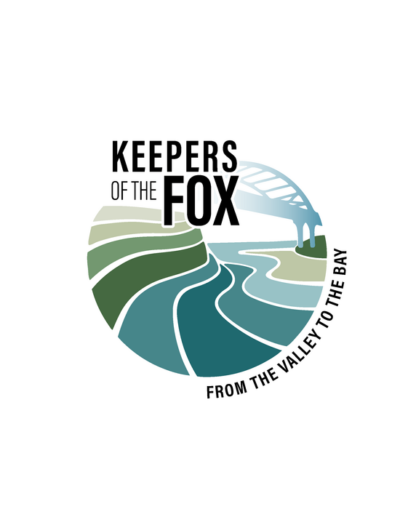
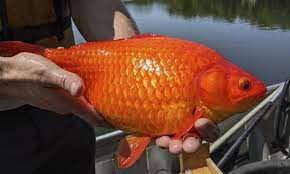
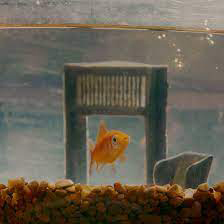 Goldfish were first spotted in Hamilton Harbour in the 1960s, but largely died off in the 1970s because of industrial contamination. In the early 2000s, their population appeared to recover. Goldfish can tolerate a wide range of water temperatures, reach sexual maturation quickly, and can eat nearly anything, including algae, aquatic plants, eggs and invertebrates, Ms. Boston said.
Goldfish were first spotted in Hamilton Harbour in the 1960s, but largely died off in the 1970s because of industrial contamination. In the early 2000s, their population appeared to recover. Goldfish can tolerate a wide range of water temperatures, reach sexual maturation quickly, and can eat nearly anything, including algae, aquatic plants, eggs and invertebrates, Ms. Boston said.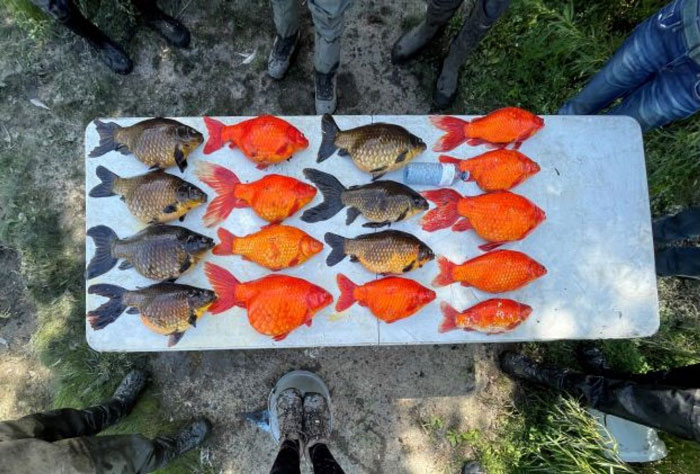
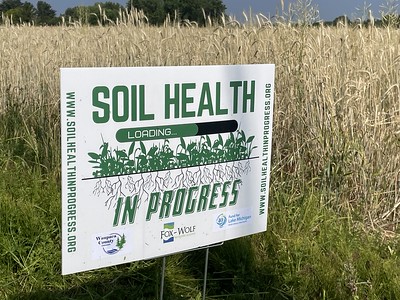
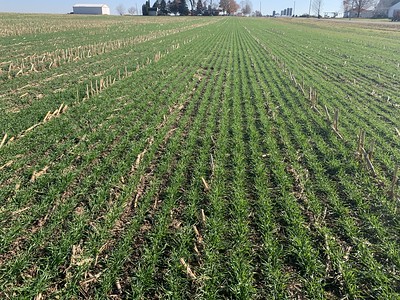

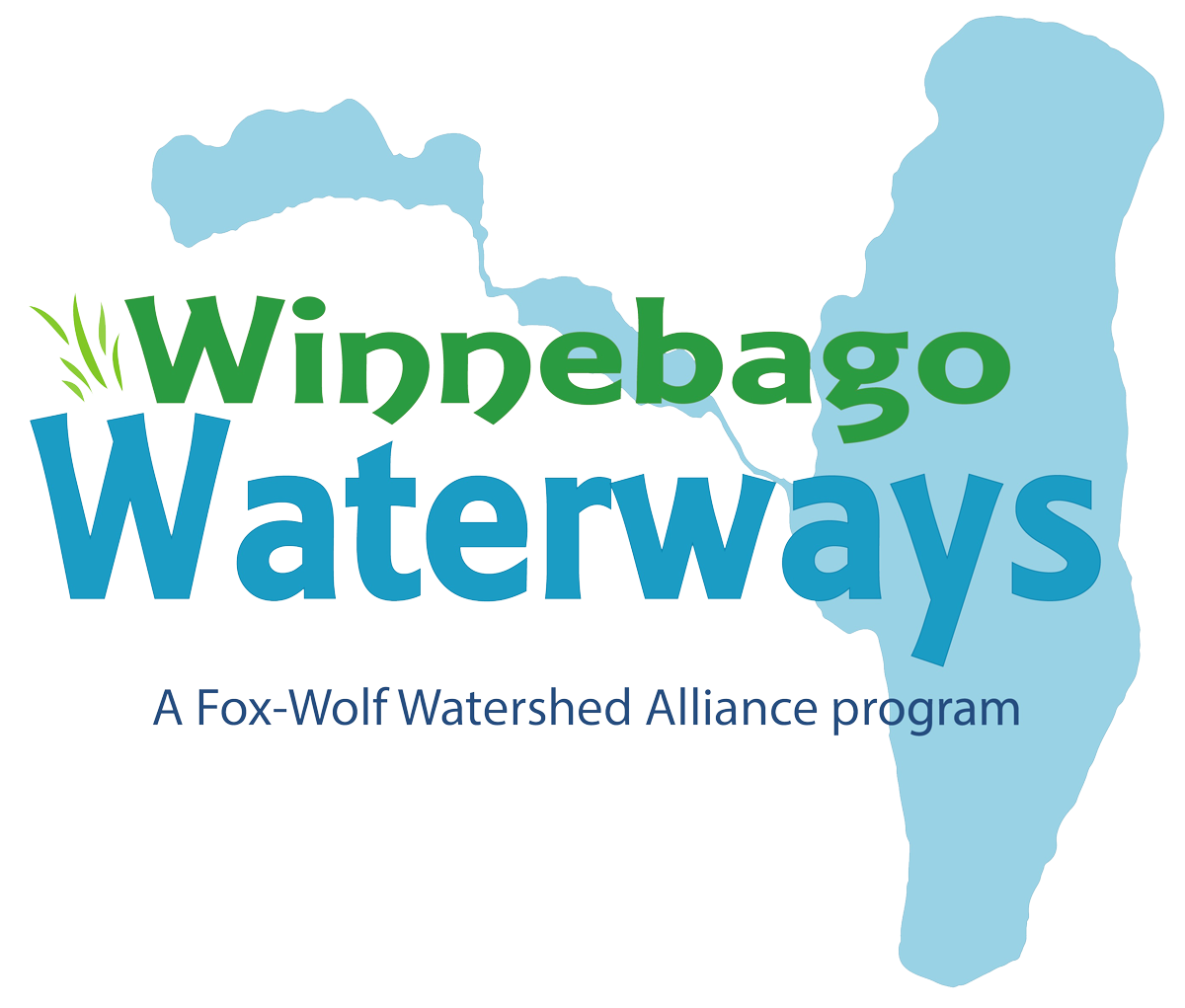
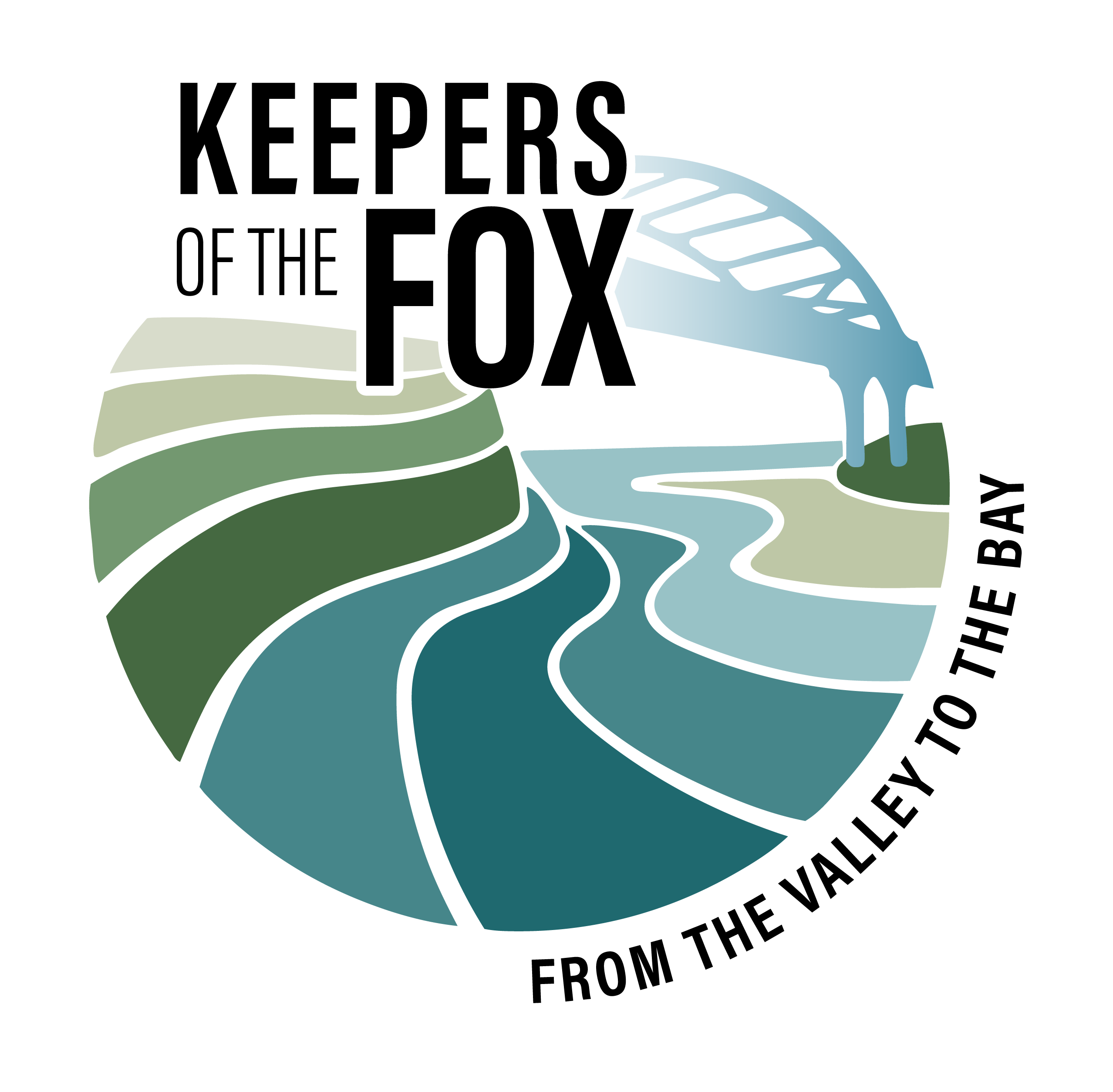
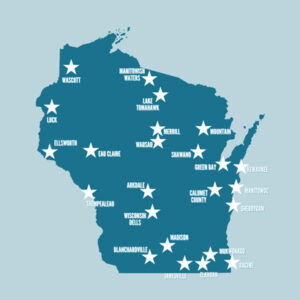 Extension Lakes. Volunteers met at different local rendezvous sites across the state to learn how to identify AIS such as Eurasian watermilfoil, purple loosestrife, and New Zealand mudsnails, and then searched for them in the field at pre-
Extension Lakes. Volunteers met at different local rendezvous sites across the state to learn how to identify AIS such as Eurasian watermilfoil, purple loosestrife, and New Zealand mudsnails, and then searched for them in the field at pre-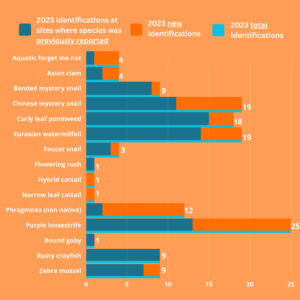 selected locations. Initially focused on rivers and streams, Snapshot Day has expanded to include lakes and wetlands. Findings from Snapshot Day are uploaded to the statewide water quality database, SWIMS, where they can be used to track the spread of invasive species and develop management plans.
selected locations. Initially focused on rivers and streams, Snapshot Day has expanded to include lakes and wetlands. Findings from Snapshot Day are uploaded to the statewide water quality database, SWIMS, where they can be used to track the spread of invasive species and develop management plans.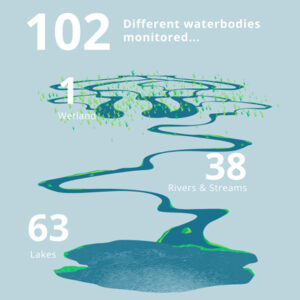 Snapshot Day’s community-based science approach maximizes the number of sites being checked across the state, and the free event allows volunteers to learn about their local waters and how to keep them healthy. As one volunteer stated, “I enjoyed the hands on learning approach. It was helpful to have well informed guides and samples of the invasive species to get a close look at. Once we had a good understanding of what to look for, it was fun to go out and collect samples of what we were finding.”
Snapshot Day’s community-based science approach maximizes the number of sites being checked across the state, and the free event allows volunteers to learn about their local waters and how to keep them healthy. As one volunteer stated, “I enjoyed the hands on learning approach. It was helpful to have well informed guides and samples of the invasive species to get a close look at. Once we had a good understanding of what to look for, it was fun to go out and collect samples of what we were finding.”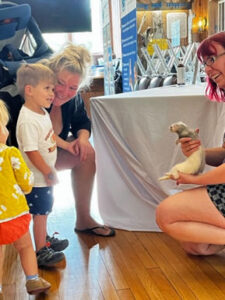
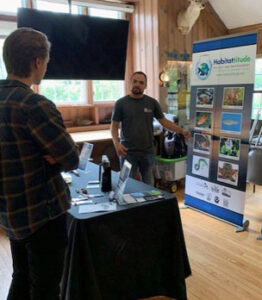 and the environment. Pet Surrender events are now being held across Wisconsin help provide an avenue to pet owners to rehome pets without harming the pet or the environment.
and the environment. Pet Surrender events are now being held across Wisconsin help provide an avenue to pet owners to rehome pets without harming the pet or the environment.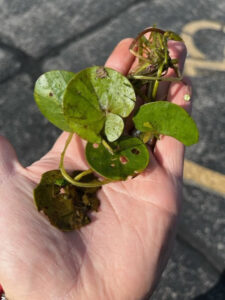 invasive species in the Bay of Green Bay.
invasive species in the Bay of Green Bay. 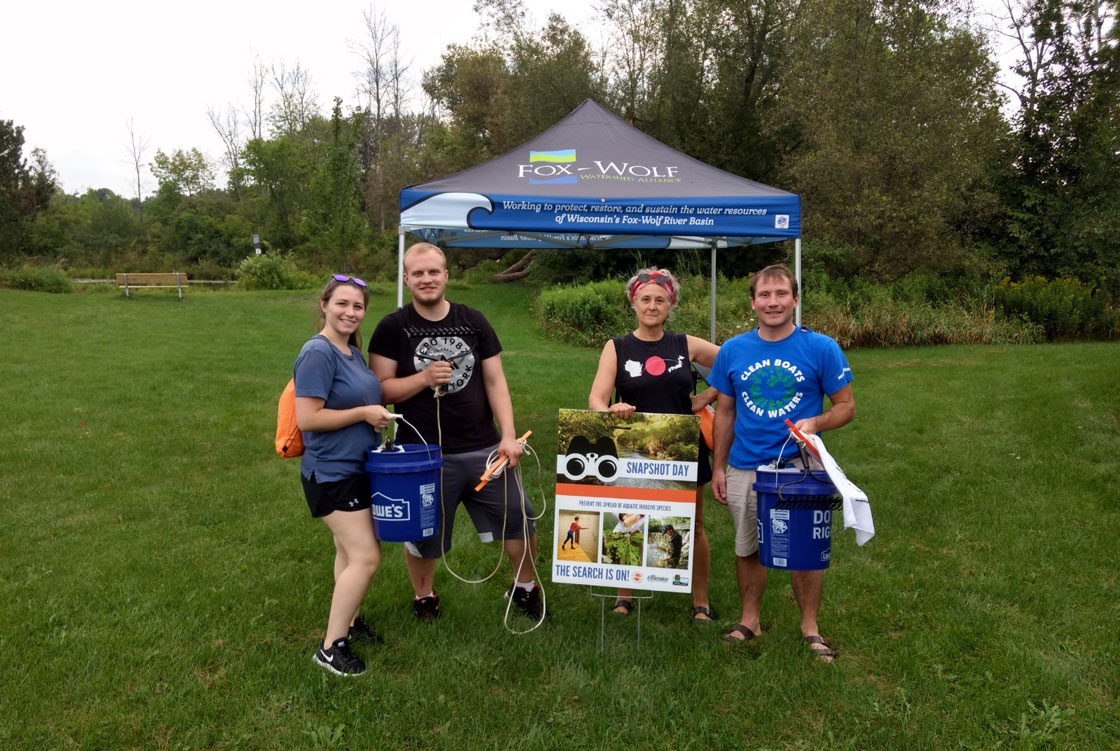 risks to Wisconsin waterways and wildlife. Volunteers have a choice to register at one of over twenty event locations hosted by local conservation groups.
risks to Wisconsin waterways and wildlife. Volunteers have a choice to register at one of over twenty event locations hosted by local conservation groups.